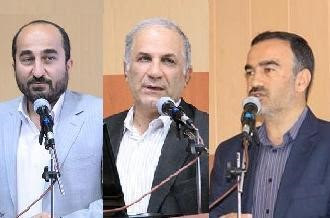SPND Killed Your Dad's Favorite Rockstars
What do Prince and Tom Petty have in common, besides having a likely presence in your dad's CD collection? They both died of drug overdoses - and, specifically, overdoses of an opioid compound called fentanyl.
Fentanyl is a hell of a drug. Originally developed as a super-potent form of pain relief, it's since become a widely misused illicit substance, and was responsible for more than 70,000 overdose deaths in the US alone in 2021.
Anyway, there's a widespread and concerted global effort by law enforcement authorities, health policy officials, and medical workers to try and minimize the illegal production and abuse of fentanyl. That noble effort stretches pretty much everywhere across the world - everywhere, that is, except a couple of key places in Iran.
As we'll see today, the IRGC and SPND aren't so much into stopping the abuse of fentanyl as they are enthusiastically exploiting its properties as a chemical warfare agent. We also have suspicions that both entities are involved in producing fentanyl to earn money on the international illicit drug market. But more on that later...
Iran's Mr Chemical Weapons
When it comes to Iran's shady work on fentanyl there's really only one point to begin.
Allow us to introduce Hossein Fakhraian (حسین فخرائیان), a professor of chemistry at the Imam Hossein University (IHU - دانشگاه امام حسین). The IHU is the IRGC's research and training university; as we've written previously, it's a hub of work on sensitive military topics ranging from missile systems to biological weapons, erm, not using biological weapons.
Hossein Fakhraian is the IHU's most important chemist, but there's not a lot of information about him available online in English language sources. Search the web and you'll find no photographs of him, and very few other references besides a list of apparently mundane academic publications on his ResearchGate page. We dug up what we think is Fakhraian's first published work, back from when he studied at the University of Paris in the late 1980s. Zose were ze days!
Look a bit closer at all of those publications though and you will see explicit indications that Fakhraian is obsessed with chemical weapons. Peer behind the scientific jargon and you'll find that Fakhraian has worked on:
- The synthesis of tear gas.
- The production of mustard gas.
- Preparation of precursor chemicals for Sarin and Soman.
- Preparation of plastic-bonded high explosives.
- Growing really, really good weed (not a joke - and we'll come back to this later)
Dig around a biut more in Farsi-language sources, and you'll find that Fakhraian is pals with SPND's Mehran Babri, and also that Fakhraian literally wrote the book on chemical agent production and defense for Iran's military.
What's really caught our eye about Fakhraian though is his research on fentanyl production and use. He's been fanboying fentanyl for nearly 20 years. Here's a 2005 paper by Fakhraian, explicitly on the chemical synthesis process of fentanyl. Here's a 2007 paper, presented at a conference in Russia (quelle surprise), on analogues of fentanyl; and another paper on that topic from 2010. Here's a 2008 paper on the production of an essential fentanyl precursor. And it goes on.
Given the important factors that a) Fakhraian is employed by the IRGC; b) virtually his entire research history is on producing chemical warfare agents; and c) his research isn't at all concerned with the medical aspect of chemical agent use, we think it's safe to say that Fakhraian's work on fentanyl is not designed to help drug abusers, nor to stop fentanyl overdoses.
So what does Fakhraian (and Iran) want with fentanyl?
That's the million dollar question. We have three hypotheses:
1. Fentanyl has potential military use as an incapacitant.
Fakhraian and other Iranian military and IRGC scientists are clearly interested in the use of fentanyl to incapacitate enemy soldiers. Fentanyl - specifically Carfentanil and Remifentanil - is the substance that Russian troops secretly piped into a Moscow theater back in 2002 in order to disarm the terrorists who had taken theater guests hostage. The results were less than perfect to say the least.
2. Fentanyl has potential use as an assassination agent.
With Iran subject to a long-running series of targeted killings of military officers and officials involved in the nuclear and missile programs, Iran's leadership is doubtless concerned to do everything it can to counter the possibility of assassination. And, in turn, keen to build the capacity to retaliate through targeted assassinations of its own. In that context, fentanyl has reportedly been used as a targeted weapon for use in assassinations. Researching the use of fentanyl - and antidotes to it - would keep the bosses happy that nobody around them is going to get Hamas'ed in the ear anytime soon.
3. Making fentanyl and smuggling it abroad for sale is potentially very, very lucrative for the IRGC and SPND.
Both of the hypotheses above are pretty obvious no-brainers. It's this third one that requires a bit more elucidation. Here goes: We suspect that elements within the IRGC and SPND are producing fentanyl in bulk in order to smuggle it abroad and sell it on the global illicit drug market. We'll freely admit that this is a hypothesis, rather than a foregone conclusion - but the facts available to us are all consistent with this hypothesis.
We can't help but notice that Iran produces far more fentanyl than it could possibly use for legitimate domestic medical purposes, such as relief of chronic pain - and that's even given all of the headaches that the current regime is suffering (badoom!). Just take a look at the range of fentanyl that Iranian state-owned company Tofigh Daru Research and Engineering Company is offering on its website! And we don't think any legitimate buyers are out there. Which means that all this fentanyl is most likely destined for the illicit global market. As an indication that we might be onto something there, we note well-sourced reports that the IRGC is deeply involved in the sale of illicit drugs abroad to fund its operations.
We think the prospect of this third hypothesis is worth considering to say the least. And even Mr Fakhraian's recent research into growing more potent marijuana makes sense if you consider that it might be part of a plan to build up the IRGC's production empire for illicit drugs.










Comments
Post a Comment